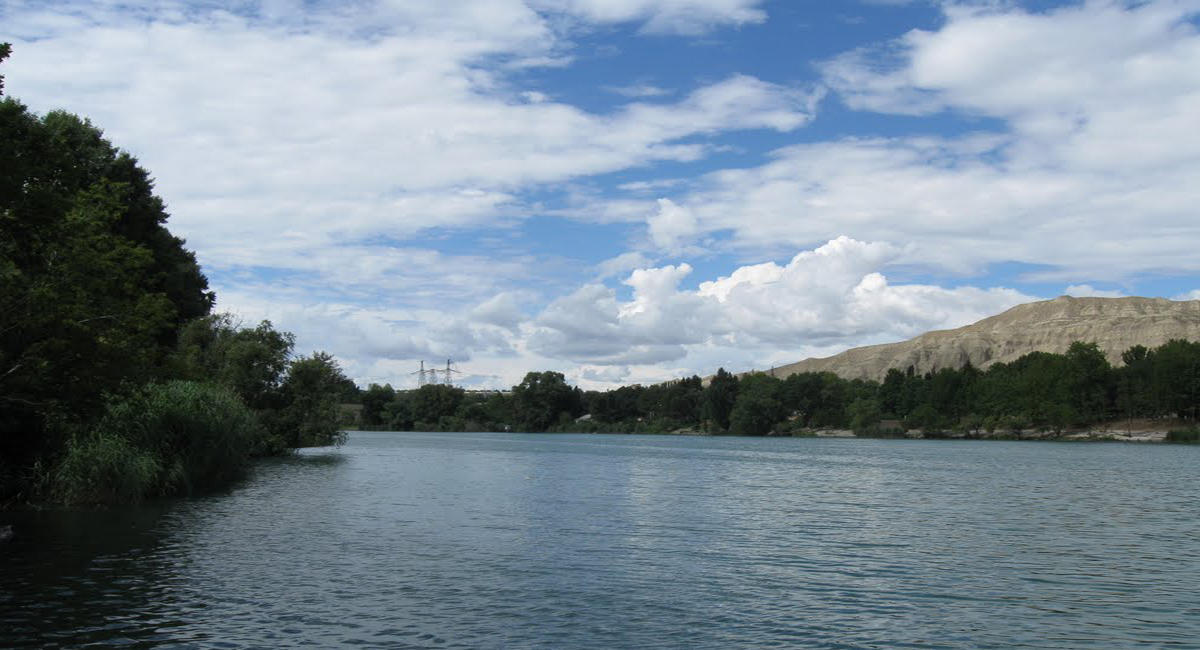Azerbaijan set to form sufficient water reserves

By Ayya Lmahamad
The country's abundant water resources promote the growth of the agrarian sector, which in turn contributes to socio-economic development. As a result, the rural population's standard of living improves, settlements grow, and so on.
Given that two-thirds of Azerbaijan's territory is agricultural land, the issue of accumulating sufficient water reserves and maintaining a vigilant attitude toward its sources is critical.
The issue of water management and optimization of its use in the agricultural sector has been a long-standing one in the country.
Two years ago Azerbaijan Amelioration and Water Management JSC prepared two draft state programs in accordance with the presidential decree “On measures to ensure efficient use of water resources” from April 15, 2020. The programs are designed for medium-term (up to 2025) and long-term (up to 2030) perspectives and envisage the construction of reservoirs, expansion of alternative water sources use, application of cost-effective irrigation technologies, preparation of the mechanism for efficient irrigation water use, and so on.
There are around 8,400 rivers in Azerbaijan, of which 24 are large ones. There are also around 450 lakes in the country. The number is not small, but according to experts, Azerbaijan’s water resources are decreasing from year to year, as a result of climatic changes. It is worth noting that this process is going on everywhere on the planet, and each country is looking for its own way out of the situation.
As for Azerbaijan, the situation was aggravated by the fact that 20 percent of its territories were under Armenian occupation for almost 30 years. Some 20-25 percent of the total water resources of Azerbaijan come to these lands. There are 14 rivers flowing through the Karabakh region and there are nine reservoirs there.
For nearly 30 years, Azerbaijan was denied and limited in its ability to use the waters of rivers and reservoirs on these territories. This also caused significant problems in the country's low-water regions.
Back in 2020, Azerbaijan liberated its territories from Armenian occupation. As a result of great victory, the country gained full access to the waters of the Araz, Bargushad, Terter, Hakari, Okhchu, Lev, Zabukh, Tutgun, Turagay, Basit, Gargar, Guru, Khachin and Kondelen rivers, as well as the Khudafarin, Sarsang, Giz Galasi, Khachynchay, Ashagy Kondelen, Sugovushan, Kondelenchay-1, Kondelenchay-2 and Aghdamkend reservoirs.
Now Azerbaijan is set to restore about 170,000 hectares of deserted lands by 2030.
In this regard, in early April, Azerbaijan's Amelioration and Water Management JSC and Israeli Mekorot company specializing in water management signed a document on establishing a new cooperation platform for transferring Israeli best practices to Azerbaijan, expanding technological capabilities and introducing innovative tools.
Given the regional processes, the global crisis, and the issue of food security and the liberation of the country's lands, Azerbaijan now needs Israel's experience in this field.
Significant amounts of water will be needed for the revival of agriculture and industry in Azerbaijan's liberated areas, as well as the return of the population. Almost all water lines and projects in these territories were destroyed by Armenians during the nearly 30-year occupation. During the war, for example, they blew up water lines in the city while fleeing Shusha. Furthermore, during the occupation, Armenians destroyed all 17 water springs.
Large-scale reconstruction had already begun there. In Azerbaijan, it is planned to build 10 new reservoirs and repair more than 20 existing reservoirs by 2022.
President Ilham Aliyev recently stated at a government meeting that irrigation works will be one of the main factors contributing to food security for both the liberated lands and the entire country. It is planned to carry out irrigation projects in the liberated lands this year. These projects will be implemented in such a way that they will be integrated into the country's overall irrigation economy.
The liberated lands, especially Kalbajar, Lachin and Gubadli regions have large water reserves and their relief features create good opportunities for the agricultural sector of the country. Natural terrain of these territories is such that both irrigation and drinking water can flow from there to Aghdam, Barda and other places.
It is worth mentioning here the reservoirs in Azerbaijan’s liberated lands.
Now Azerbaijan is restoring all the reservoirs that were under occupation - Khudafarin, the largest reservoir with a capacity of 1.6 billion cubic meters, Giz Galasi, Sugovushan, Khachin, Kondalanchay-1, Kondalanchay-2, Ashaghi Kondalanchay and Aghdamkand. The construction of a new reservoir - the Hakarichay reservoir is on the agenda.
The Sugovushan water reservoir and canal will be renovated as well. The length of the canal is 5.2 km, and after the repairs, it will be possible to supply water to a large area. The Khachinchay reservoir and a 7-km canal, which is right under Mount Farrukh, will also be renovated.
The reconstruction of the Tartarchay Left Bank canal, the water management complex of Aghdam, Fuzuli and Jabrayil regions, as well as the identification of water sources is also on the agenda.
Additionally, a new reservoir is to be built in either Zangilan or Gubadli region, and the construction of these canals will allow the opportunity to irrigate 10,000 hectares of land in the near future.
In short, the issue of land reclamation and irrigation in Azerbaijan is very acute today. Azerbaijan has a favorable climate and fertile land, which means that with the right approach and using advanced technology, the country will achieve its goals very soon.
--
Ayya Lmahamad is AzerNews’ staff journalist, follow her on Twitter: @AyyaLmahamad
Follow us on Twitter @AzerNewsAz
Here we are to serve you with news right now. It does not cost much, but worth your attention.
Choose to support open, independent, quality journalism and subscribe on a monthly basis.
By subscribing to our online newspaper, you can have full digital access to all news, analysis, and much more.
You can also follow AzerNEWS on Twitter @AzerNewsAz or Facebook @AzerNewsNewspaper
Thank you!
